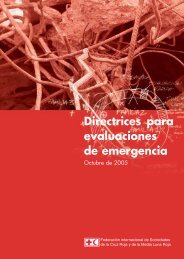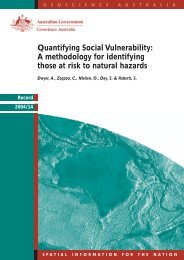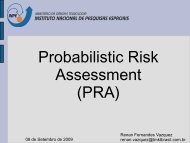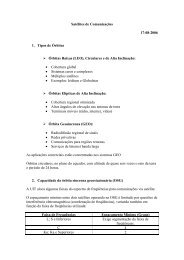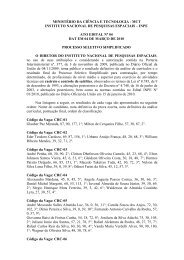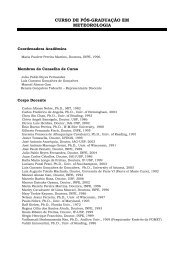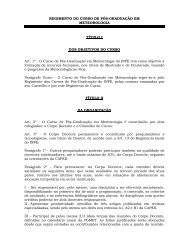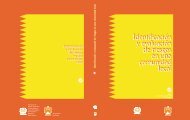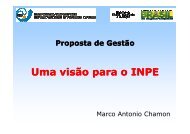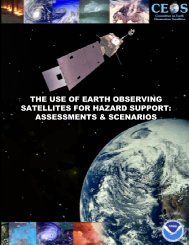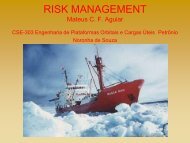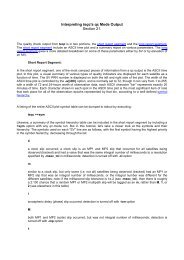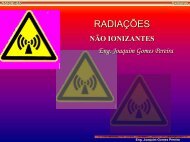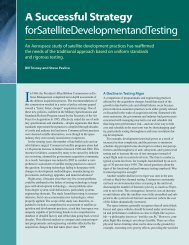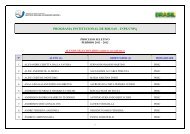Living with Risk. A global review of disaster reduction initiatives
Living with Risk. A global review of disaster reduction initiatives
Living with Risk. A global review of disaster reduction initiatives
You also want an ePaper? Increase the reach of your titles
YUMPU automatically turns print PDFs into web optimized ePapers that Google loves.
a2<br />
<strong>Living</strong> <strong>with</strong> <strong>Risk</strong>: A <strong>global</strong> <strong>review</strong> <strong>of</strong> <strong>disaster</strong> <strong>reduction</strong> <strong>initiatives</strong><br />
rRegional Consultative Committee (RCC) in Disaster Management, Bangkok, Thailand<br />
Within the framework <strong>of</strong> the Advisory Council, an ADPC Consultative Committee on Regional Cooperation in Disaster Management<br />
has been established. The Committee comprises members <strong>of</strong> the ADPC Board <strong>of</strong> Trustees/Advisory Council who are working in key<br />
Government positions in the National Disaster Management systems <strong>of</strong> countries <strong>of</strong> the Asian region. The role <strong>of</strong> RCC is to provide<br />
an informal consultative mechanism for development <strong>of</strong> action strategies for <strong>disaster</strong> <strong>reduction</strong> in the region and<br />
promotion <strong>of</strong> cooperative programs on a regional and sub-regional basis; so as to guide ADPC’s work.<br />
http://www.adpc.ait.ac.th/pdp/consultative.html<br />
Regional Early Warning Unit (REWU), SADC, Harare, Zimbabwe<br />
The SADC Regional Early Warning Unit is an institution <strong>of</strong> the Southern African Development Community financially supported<br />
through contributions from Member States. The SADC Regional Early Warning System operates as an integrated project, comprising a<br />
Regional Early Warning Unit (REWU), based in Harare, and autonomous National Early Warning Units in each <strong>of</strong> the ten original<br />
SADC member states.<br />
http://www.sadc-fanr.org.zw/rewu/rewu.htm<br />
Regional Remote Sensing Unit (RRSU), SADC, Harare, Zimbabwe<br />
The main objective is to strengthen national and regional capabilities in the area <strong>of</strong> remote sensing and GIS for use <strong>of</strong> early warning for<br />
fFood security and natural resources management. http://www.sadc-fanr.org.zw/rrsu/rrsu.htm<br />
Regional Unit for Technical Assistance (RUTA), (Unidad regional de assistencia técnica), Costa Rica<br />
RUTA is the collaboration between governments and international development agencies in the sustainable development <strong>of</strong> rural areas<br />
in Central America. Its mission is to contribute to sustainable rural growth in order to reduce rural poverty in the Central American<br />
region by means <strong>of</strong> national and regional development agendas – a common effort between governments, civil societies and social agen-<br />
www.ruta.org scies.<br />
Save the Children Fund, United Kingdom (SCF-UK)<br />
SCF-UK is the leading United Kingdom charity working to create a better world for children. http://193.129.255.93/<br />
Secretaría General de Planificación (SEGEPLAN), Guatemala (Planning Secretariat)<br />
The Secretariat <strong>of</strong> Planning and Programming (SEGEPLAN) is an institution that supports decision making, <strong>with</strong>in the Presidency<br />
and other centers <strong>of</strong> public policy formulation in the Executive Branch, by providing specific social-economic information that facilitates<br />
informed decisions related to the country’s<br />
development. http://www.segeplan.gob.gt/<br />
Sistema de Integración Centroamericana (SICA)<br />
SICA, and its secretariat, is a regional organization created by the Central American Presidents in the Declaration <strong>of</strong> Tegucigalpa <strong>with</strong><br />
the purpose <strong>of</strong> <strong>of</strong>fering its technical services as well as political expertise to the <strong>initiatives</strong> <strong>of</strong> regional integration, and particularly to the<br />
development <strong>of</strong> the Centroamerican Union.<br />
http://www.sicanet.org.sv/<br />
Sistema Nacional para la Prevención, Mitigación y Atención de Desastres (SNPMAD), Nicaragua<br />
(National System for Disaster Prevention, Mitigation and Attention)<br />
On March, 2000, the “Legislation 337” was approved for the establishment <strong>of</strong> the National System for the Prevention, Mitigation <strong>of</strong>,<br />
and Attention to Disasters (the System). The National Committee is the administrative entity <strong>of</strong> the System, whose role it is to define the<br />
policies and plans <strong>of</strong> the System, as well as to assist the President <strong>of</strong> the Republic <strong>with</strong> the declaration <strong>of</strong> a State <strong>of</strong> Emergency and<br />
approve the annual budget directed to the National Fund for Disasters. In order to meet its objectives in terms <strong>of</strong> the prevention, mitigation<br />
<strong>of</strong>, and attention to <strong>disaster</strong>s, the System has established Commisions for Sectorial Initiatives for the execution <strong>of</strong> the plans adopted<br />
by the National System. Legislation 337 stipulates that the Commissions shall be organized and coordinated at the Ministerial level.<br />
http://www.sosnicaragua.gob.ni/<br />
Sistema Nacional de Protección Civil (SINAPROC), Panama (National Civil Protection System)<br />
SINAPROC is an infrastructure <strong>of</strong> programmes, institutional relationships, methodologies and processes, which coordinates the common<br />
efforts <strong>of</strong> the institutions <strong>of</strong> the three governmental hierarchies, as well as the public and private social agencies, to protect society<br />
against the dangers <strong>of</strong> natural risks and <strong>disaster</strong>s.<br />
http://www.c-com.net.pa/~snpce/<br />
South African Qualifications Authorities (SAQA)<br />
The South African Qualifications Authority is a body <strong>of</strong> 29 members appointed by the Ministers <strong>of</strong> Education and Labour. The members<br />
are nominated by identified national stakeholders in education and training. Its National Qualifications Framework is the set <strong>of</strong> principles<br />
and guidelines by which records <strong>of</strong> learner achievement are registered to enable national recognition <strong>of</strong> acquired skills and knowledge,<br />
thereby ensuring an integrated system that encourages life-long learning.<br />
http://www.saqa.org.za/<br />
360



